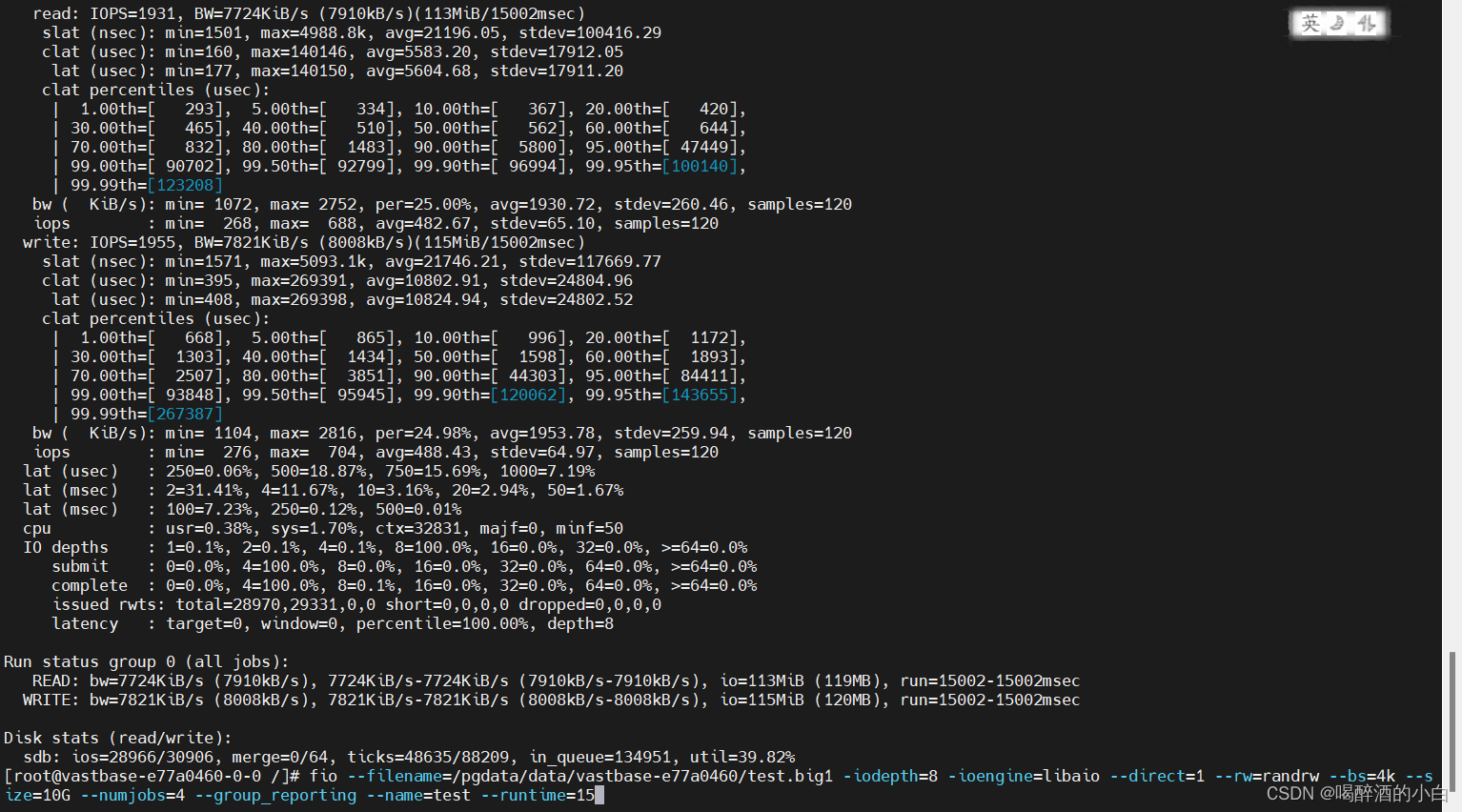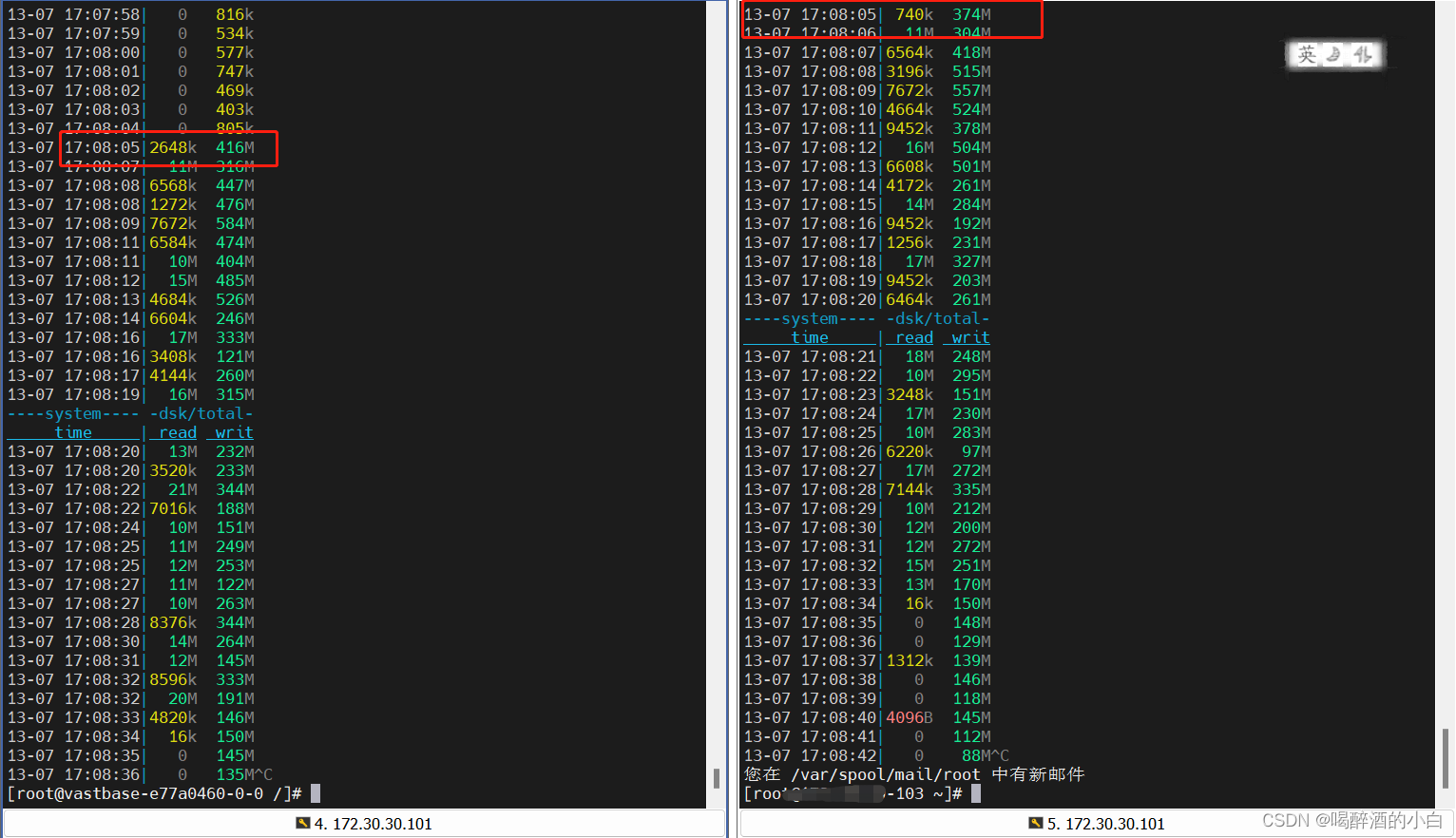Wenn Sie den Befehl dstat in einem Container ausführen, wird die Ressourcennutzung innerhalb des Containers angezeigt, nicht auf dem Host. dstat ist ein Tool zum Sammeln und Berichten von Statistiken zu Systemressourcen, einschließlich CPU-, Speicher-, Festplatten- und Netzwerknutzung usw. Wenn Sie den Befehl dstat in einem Container ausführen, wird die Ressourcennutzung in diesem Container erfasst und angezeigt, nicht auf dem Hostcomputer. Dies hilft Ihnen, Ereignisse und Ressourcennutzung im Container zu überwachen und zu diagnostizieren.
dstat -t -d
fio --filename=/pgdata/data/vastbase-e77a0460/test.big1 -iodepth=8 -ioengine=libaio --direct=1 --rw=randrw --bs=4k --size=10G --numjobs=4 --group_reporting --name=test --runtime=15


dstat -h
Usage: dstat [-afv] [options..] [delay [count]]
Versatile tool for generating system resource statistics
Dstat options:
-c, --cpu enable cpu stats
-C 0,3,total include cpu0, cpu3 and total
-d, --disk enable disk stats
-D total,hda include hda and total
-g, --page enable page stats
-i, --int enable interrupt stats
-I 5,eth2 include int5 and interrupt used by eth2
-l, --load enable load stats
-m, --mem enable memory stats
-n, --net enable network stats
-N eth1,total include eth1 and total
-p, --proc enable process stats
-r, --io enable io stats (I/O requests completed)
-s, --swap enable swap stats
-S swap1,total include swap1 and total
-t, --time enable time/date output
-T, --epoch enable time counter (seconds since epoch)
-y, --sys enable system stats
--aio enable aio stats
--fs, --filesystem enable fs stats
--ipc enable ipc stats
--lock enable lock stats
--raw enable raw stats
--socket enable socket stats
--tcp enable tcp stats
--udp enable udp stats
--unix enable unix stats
--vm enable vm stats
--plugin-name enable plugins by plugin name (see manual)
--list list all available plugins
-a, --all equals -cdngy (default)
-f, --full automatically expand -C, -D, -I, -N and -S lists
-v, --vmstat equals -pmgdsc -D total
--bits force bits for values expressed in bytes
--float force float values on screen
--integer force integer values on screen
--bw, --blackonwhite change colors for white background terminal
--nocolor disable colors (implies --noupdate)
--noheaders disable repetitive headers
--noupdate disable intermediate updates
--output file write CSV output to file
--profile show profiling statistics when exiting dstat
delay is the delay in seconds between each update (default: 1)
count is the number of updates to display before exiting (default: unlimited)